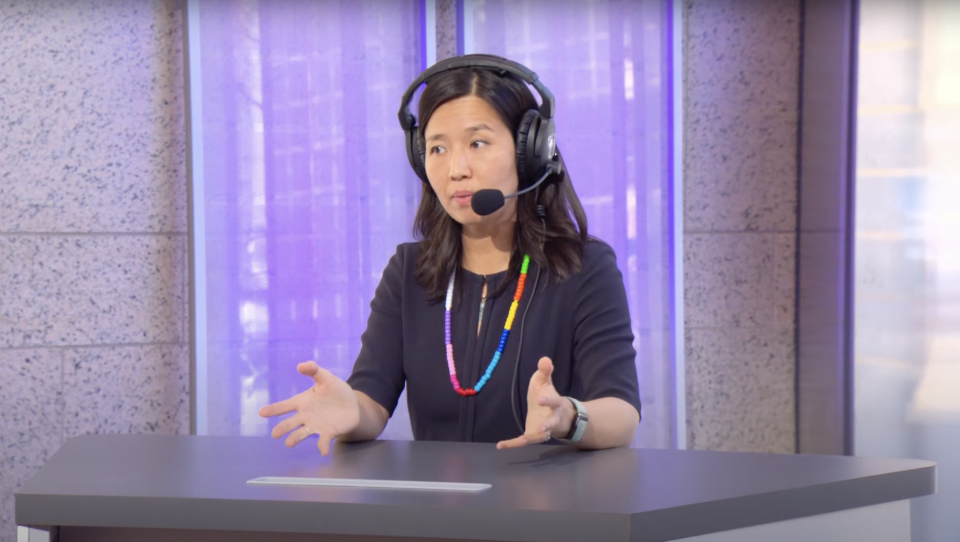Boston Mayor Michelle Wu tells GBH News she’s still hopeful that the state Legislature will allow Boston to temporarily raise commercial tax rates as commercial property valuations drop, a move she says would keep Boston residents from paying drastically higher property taxes over the next few years.
Wu’s proposal, which came via a home-rule petition filed with the Legislature earlier this year, has already been approved by the Massachusetts House, but the state Senate didn’t act on it before the end of the Legislature’s formal session this summer.
Last month, that lack of action led to a war of words between the mayor and Senate President Karen Spilka, with Wu suggesting that Bostonians should blame the Senate if their taxes go up and Spilka replying through a spokesperson that Wu’s proposal seems like bad public policy and lacks Senate support.
But on Tuesday, during an appearance on GBH News’ Boston Public Radio, Wu said she’s continuing to talk with Spilka about the proposed tax shift.
“[The Legislature is] still working through a lot of the important items that were left, sort of, on the cutting room floor when [the] session formally ended,” Wu said. “They just moved, for example, liquor licenses for Boston, so we’ll be getting over 200 new licenses, and that happened after [the] session closed. And so we continue to be in conversation.”
Spilka “has said to me ... that she’s interested in good policy,” Wu added. “And so I am eager to continue making our case.”
Wu also said that, even if the Legislature gives the city the authority to raise tax rates on commercial properties, commercial property owners will still have lower tax bills than they previously did, thanks to the ongoing property devaluation brought on by the rise of remote work.
“Overall, commercial taxes will still go down under this proposal,” Wu said. “But they just won’t have a massive tax break — as would be the natural outcome given the rigidity of our tax laws — if their valuations go down while residential goes up.”
Year to year, Wu has said , Boston derives 60% of its tax revenue from commercial property taxes and 40% from residential property taxes, a distribution she says her pending proposal would ultimately maintain if implemented.
If the Legislature doesn’t give Boston the authority to temporarily raise commercial rates, Wu said, residential tax bills will increase by approximately 33%.
Spilka’s office did not immediately respond to a request for comment.
Wu also said she’s hopeful that Carney Hospital in Dorchester, which was recently shuttered as a result of operator Steward Health Care’s bankruptcy, will continue to provide some type of health care services in the future. While there are already plans in place for several Steward hospitals in Massachusetts to be acquired and run by new operators, Carney and Nashoba Valley Medical Center in Ayer have both been closed.
“There could be a new combination of services at that site that might, for example, provide for emergency room care,” Wu said. “Some of the imaging services like colonoscopy and mammography and outpatient care. ... We are not giving up on making sure that this does not become a health care desert.”
Any such reinvention would likely require state assistance. Wu says her administration remains in close contact with Gov. Maura Healey’s about the Carney site’s future.





